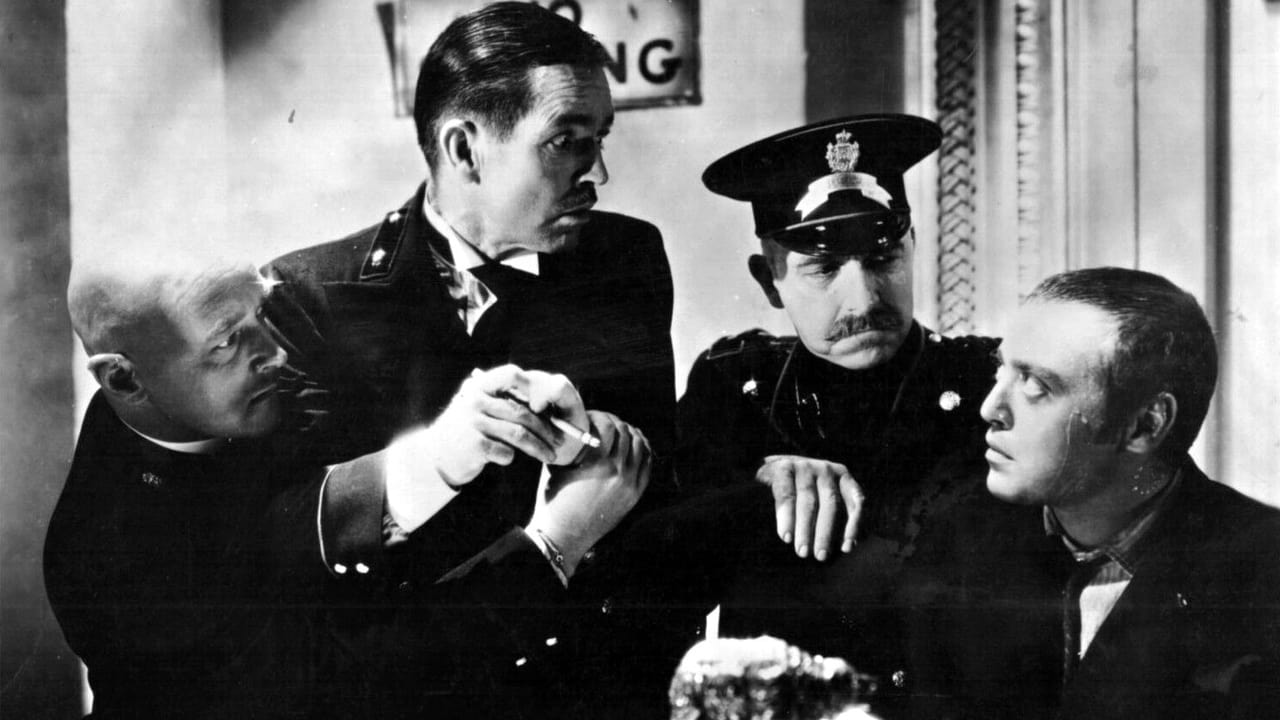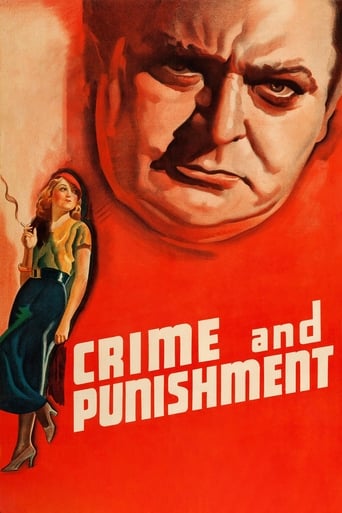



Really Surprised!
Fantastic!
A film with more than the usual spoiler issues. Talking about it in any detail feels akin to handing you a gift-wrapped present and saying, "I hope you like it -- It's a thriller about a diabolical secret experiment."
View MoreThere are moments that feel comical, some horrific, and some downright inspiring but the tonal shifts hardly matter as the end results come to a film that's perfect for this time.
View MoreI have spent my entire adult life reading and teaching the works of Dostoevsky, and as such I often approach film adaptations with a great deal of trepidation. Cinematic adaptations of ambitious Russian novels inherently involve a tremendous amount of compromise and reduction. At worst, they become embarrassing comic-book imitations of the original, and, at best, they become representative distillations, provocative fragments.If one wants to see the best attempt at the latter, one should see the 1970 Kulidzhanov film version, which hews as close as possible to the original spirit and themes of the novel.This 1935 von Sternberg version does not fall neatly into either category. It certainly makes some wrenching changes to the original-- not just in terms of plot details (such changes are inevitable for the cinematic form), but even to the thematic spirit of the original (Roderick receiving such high honors at the outset; Roderick entering a such a strident Napoleonic phase _after_ the crime; the momentary 180-degree reversal in Sonia's final speech), but what does come through successfully is a kind of gestalt rumination on the original novel. If Dostoevsky's novel was an exquisitely perfect, ambitious symphony, this film is a jazz rhapsody on the theme of the book; it borrows and rearranges motifs and creates its own new song, a song nothing like the original in particulars, but a worthwhile song on its own merits.The film certainly seems to make full use of the serendipitous similarity in appearance between Lorre and Napoleon in his most famous portraits (Lorre even hams it up by sliding his hand under his vest at one point, which is the stereotypical Napoleonic gesture). And the decision to set the story in no particular city, it seems to me, was a judicious one, as it eliminates much of the painful artificiality that inevitably comes when Anglophone films attempt to portray Russian society.In short, I do think this is a worthwhile film if it is judged as a creation unto its own-- not the novel per se, but a kind of Hollywood, proto-noir inspired by the great book.
View MoreJosef von Sternberg directed this version of "Crime and Punishment," starring Peter Lorre, Edward Arnold, and Marian Marsh in 1935. It's an updating of the great novel, with Lorre as a man tortured by his own conscience.It's a fairly dreary-looking affair, quite dark, with impressive use of shadows. The most interesting aspect of the way it was filmed to me is how Lorre's small stature is emphasized, as if the staircase, for instance, was over-sized. The incomparably beautiful Marian Marsh is the prostitute who tries to help him, and she gives a very gentle and heartfelt performance. Edward Arnold is the bombastic head of the murder investigation of the pawnbroker (Mrs. Patrick Campbell) - he's plenty scary. I don't blame Lorre for being a complete wreck.Lorre is excellent playing a character who vacillates between arrogance one minute and fear the next. Definitely in the top ten of unusual faces and voices in film history, his hooded eyes show the torture the character is suffering.Definitely worth seeing for von Sternberg's direction, Lorre and Marsh.
View MoreJosef von Sternberg's touch looms over CRIME AND PUNISHMENT--the dramatic lighting of shadowy photography, the Dietrich-like close-ups of its female star--but while he has captured the mood of the story with his photography, the film is flawed in many ways.PETER LORRE's performance is uneven, his actions sometimes implausible given that he's supposed to be an expert author of an essay on crime. His sudden bursts of temper to suggest that his conscience is nagging him are almost on the point of burlesque. Von Sternberg should have taken more care in directing Lorre--as much care as he took in lighting MARIAN MARSH for the camera. She looks radiant but is just so-so in performance as the street harlot. ELISABETH RISDON is well cast as Lorre's weak mother.MRS. PATRICK CAMPBELL makes a formidable pawnbroker and an unsympathetic victim of Lorre's crime. EDWARD ARNOLD, who gets top billing, makes a police inspector who is more jovial than crafty with a Santa Claus laugh that would have served him better if he were playing comedy rather than psychological drama.And yet, the story remains a compelling one and the moody atmosphere with its Germanic expressionistic photography is bound to keep a viewer interested in the proceedings.Summing up: Could have been a much better version of a tortured soul with more time spent on developing a plausible central character.
View MoreArriving in the unlikely environment of action B movie studio Columbia, Von Sternberg, the ultimate aesthete, either by choice or circumstance fronted this project that was unlikely for him and for the company.He manages some striking images - the faceless rank of students from which Lorre emerges, the third story pawn broker's door which he furtively re-visits, the river reflection of Marsh's home, the tacky studio decors are enlivened by decoration (the stacked books in Lorre's room) and the attractive use of lighting (throwing curtain pattern over the action or rimming Marsh's hair). Even this decorative panache betrays it's creator at times - Painter Mark's arm raised awkwardly from his crouching position to follow a screen diagonal.The uninspired adaptation (the only one to preserve the Svedrigaylov character, represented murkily effectively by Dumbrille), conventional technique, serial sound score and erratic casting hold things back.Lorre is the screen's most menacing Raskolnikov. You expect him to produce a clasp knife and attack anyone rather than engage in philosophical debate. Arnold earns his top billing, turning Porphyry into Doctor Hibbard, but in a league table of interpretations of character he comes equal third with Warren William under Harry Baur and Frank Silvera
View More